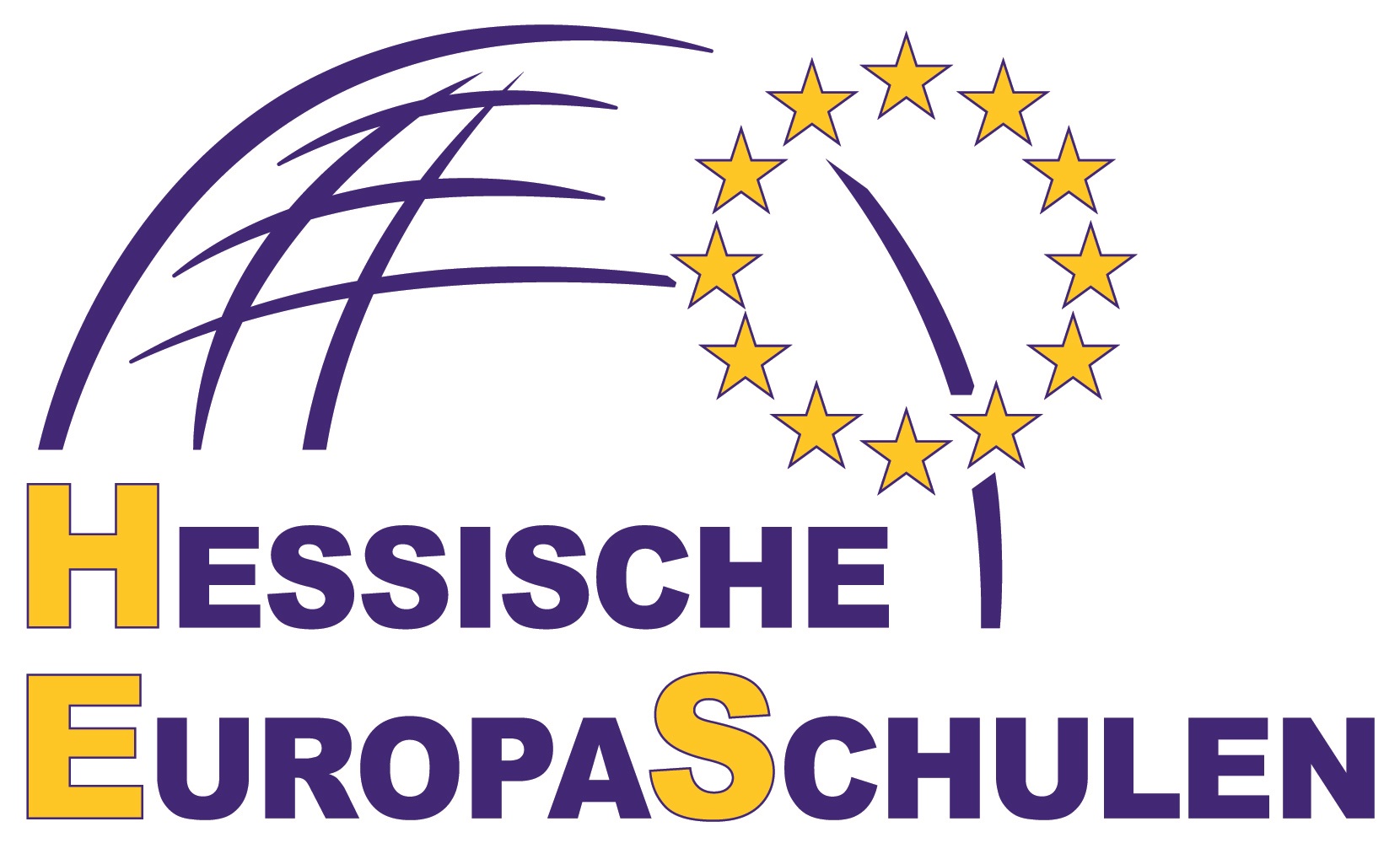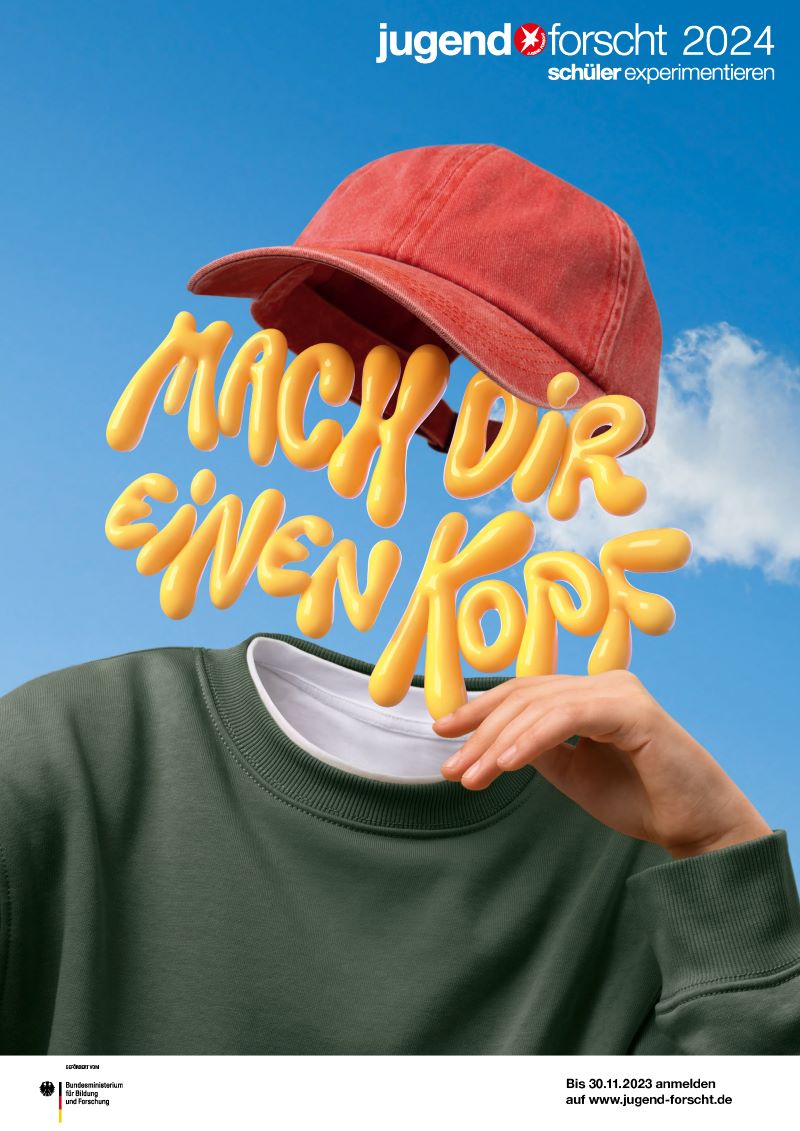 Four projects from the Jugend forscht MakerLab at at Schuldorf Bergstraße won their category in the regional competition at the beginning of February and will now compete again in the state competition. The state competition "Schüler experimentieren" took place in Kassel from March 16 to 17. From March 20 to 21, the state competition in the "Jugend forscht" category takes place at Merck in Darmstadt for pupils aged 15 and over.
Four projects from the Jugend forscht MakerLab at at Schuldorf Bergstraße won their category in the regional competition at the beginning of February and will now compete again in the state competition. The state competition "Schüler experimentieren" took place in Kassel from March 16 to 17. From March 20 to 21, the state competition in the "Jugend forscht" category takes place at Merck in Darmstadt for pupils aged 15 and over.
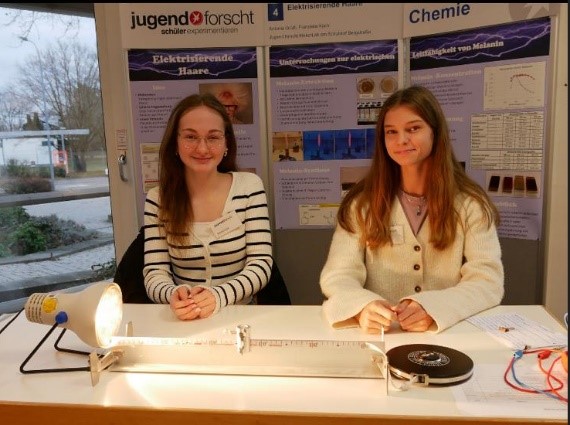 With their project "Electrifying hair .... or is melanin electrically conductive?", Antonia Grüdl and Franziska Küch, both from year 7 of the German Gymnasium, compete in Kassel in the Chemistry category, even though they had never had Chemistry lessons before. In the weeks following the regional competition, they visited the MakerLab twice a week and worked intensively on topics such as the color of pigments, the biosynthesis of melanin and electrochemistry. The color pigment melanin, which is found in vertebrates, fungi, plants and bacteria, is the most stable substance known, which makes it even more interesting for the production of chemical energy from light photons. Both students have also applied for patents for their research results.
With their project "Electrifying hair .... or is melanin electrically conductive?", Antonia Grüdl and Franziska Küch, both from year 7 of the German Gymnasium, compete in Kassel in the Chemistry category, even though they had never had Chemistry lessons before. In the weeks following the regional competition, they visited the MakerLab twice a week and worked intensively on topics such as the color of pigments, the biosynthesis of melanin and electrochemistry. The color pigment melanin, which is found in vertebrates, fungi, plants and bacteria, is the most stable substance known, which makes it even more interesting for the production of chemical energy from light photons. Both students have also applied for patents for their research results.
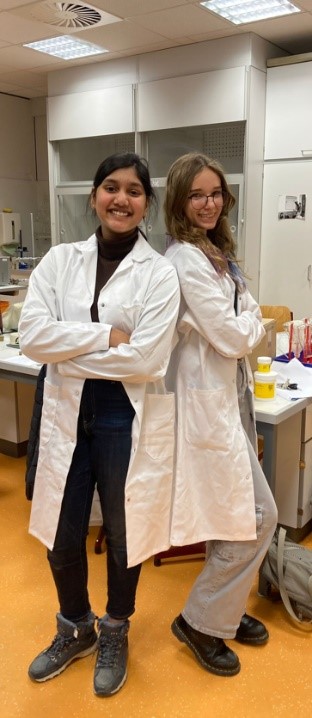 "Bacteria on the menu - phages instead of antibiotics?" is the name of the project by Misha Hedge (9th grade international branch) and Mia Maurer (8th grade German Gymnasium), who are competing for the title in the Biology category in Kassel. Their efforts in recent weeks have also been rewarded: in their Escherichia coli bacteria model, they were able to show which number of phages has the same bactericidal effect as a certain amount of antibiotics. Phages are bacteria-specific viruses that are already prescribed in some Eastern European countries for the treatment of resistant germs. Misha and Mia have also completely familiarized themselves with the relevant microbiological and molecular biological principles in order to withstand the jury's questions.
"Bacteria on the menu - phages instead of antibiotics?" is the name of the project by Misha Hedge (9th grade international branch) and Mia Maurer (8th grade German Gymnasium), who are competing for the title in the Biology category in Kassel. Their efforts in recent weeks have also been rewarded: in their Escherichia coli bacteria model, they were able to show which number of phages has the same bactericidal effect as a certain amount of antibiotics. Phages are bacteria-specific viruses that are already prescribed in some Eastern European countries for the treatment of resistant germs. Misha and Mia have also completely familiarized themselves with the relevant microbiological and molecular biological principles in order to withstand the jury's questions.
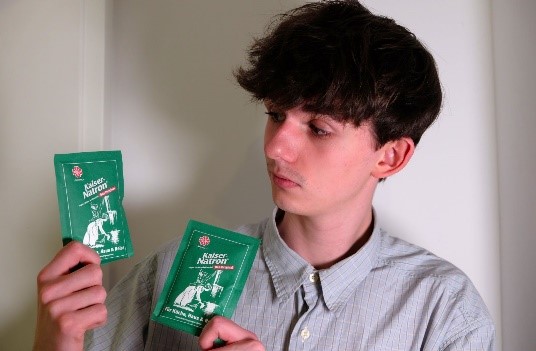 With his project "RENEWacycle - climate-neutral decarbonization through CaCl2 waste recycling", Tom Lippok is trying to solve the question of what happens to the millions of tons of waste from soda (baking soda) production. His aim is to develop a closed resource cycle that can be implemented on an industrial scale in the future. Tom will be competing in the state competition at Merck in the Chemistry category next week and has already applied for a patent for his process. He attends the E phase of the German Gymnasium.
With his project "RENEWacycle - climate-neutral decarbonization through CaCl2 waste recycling", Tom Lippok is trying to solve the question of what happens to the millions of tons of waste from soda (baking soda) production. His aim is to develop a closed resource cycle that can be implemented on an industrial scale in the future. Tom will be competing in the state competition at Merck in the Chemistry category next week and has already applied for a patent for his process. He attends the E phase of the German Gymnasium.
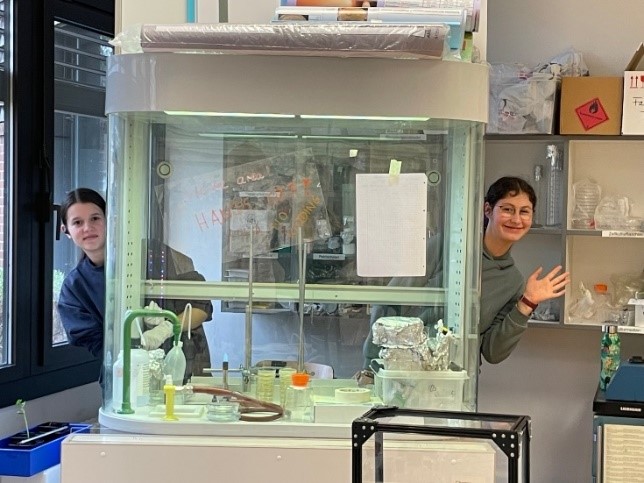 Charlotte Popp and Clara Tonarelli were inspired for their project "Mouth and nose protection masks - protection for us, harm for nature?" by the fact that disposable medical masks were carelessly discarded in nature during the coronavirus pandemic instead of ending up in the residual waste. They are in the 10th grade of the German Gymnasium and are competing for the second time in the state competition at Merck in the Biology category. Based on their test series from last year, the two have developed a mask material that they want to test for biodegradability and protection against germs. Their degradation process is to be examined in direct comparison with existing masks, for which the two have developed a closed composting system with automated product analysis.
Charlotte Popp and Clara Tonarelli were inspired for their project "Mouth and nose protection masks - protection for us, harm for nature?" by the fact that disposable medical masks were carelessly discarded in nature during the coronavirus pandemic instead of ending up in the residual waste. They are in the 10th grade of the German Gymnasium and are competing for the second time in the state competition at Merck in the Biology category. Based on their test series from last year, the two have developed a mask material that they want to test for biodegradability and protection against germs. Their degradation process is to be examined in direct comparison with existing masks, for which the two have developed a closed composting system with automated product analysis.
We'll keep our fingers crossed for you!
Your project supervisors
Dr. Sara Bosio, Laín Mencía Martínez, Stefan Netzer, Dr. Dietmar Scherr,
Dr. Claudia Syren und Dr. Petra Leidert (Text and Pictures)
Poster: Stiftung Jugend Forscht e.V.
